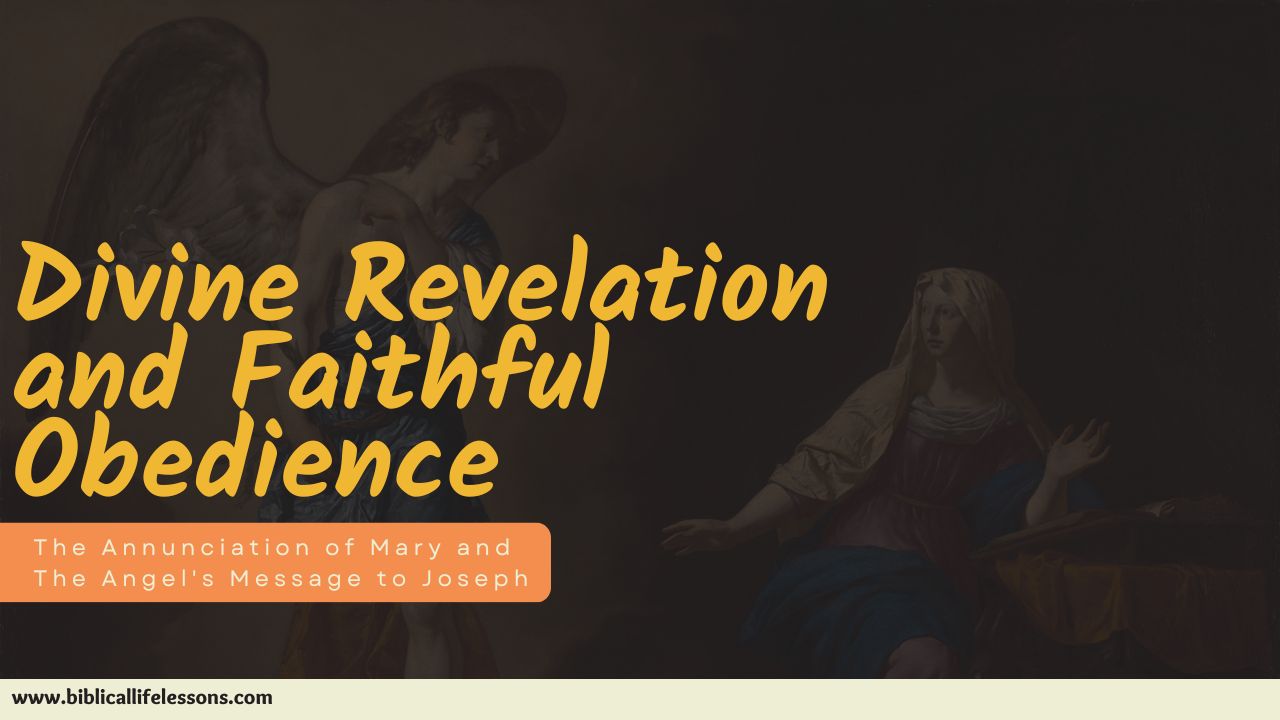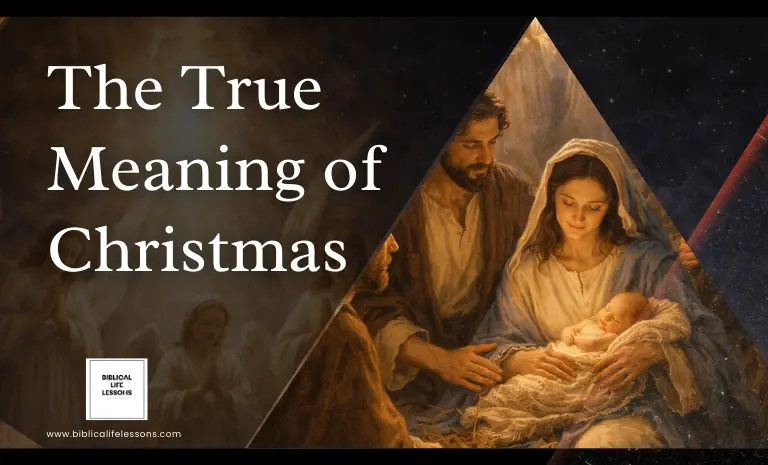The Annunciation of Mary, as described in Luke 1:26-38 and the angel’s message to Joseph in Matthew 1:18-25, marks a pivotal moment in Christian history. It is a divine revelation that sets the stage for the birth of Jesus Christ, the Savior of humanity. In this article, we will delve into the details of these significant events and extract valuable life lessons from the exemplary faith and obedience displayed by Mary and Joseph.

The Annunciation to Mary (Luke 1:26-38)
The Divine Messenger
The story begins with the appearance of the angel Gabriel to Mary, a young Jewish girl in Nazareth. Gabriel, known as a messenger of God, is sent with a profound revelation. This encounter signifies the divine favor bestowed upon Mary.
The Message of Hope
Gabriel reveals to Mary that she has been chosen by God to conceive and bear a child, who will be named Jesus. He explains that this child will be the Son of the Most High and will reign over the house of Jacob forever. This miraculous conception will occur through the power of the Holy Spirit, affirming the divine nature of this event.
Mary’s Response
Mary, though initially perplexed by this extraordinary message, demonstrates a remarkable depth of faith and humility. Her response, “Let it be to me according to your word,” signifies her complete surrender to God’s plan, despite the societal challenges she would face as an unwed mother.
Life Lessons from Mary’s Annunciation
- Faithful Submission: Mary’s unwavering trust in God’s plan serves as an inspiring example of surrendering to divine guidance, even when the path seems uncertain.
- Humility in Service: Mary’s willingness to play a crucial role in the fulfillment of God’s promise showcases the importance of humility in serving a higher purpose.
- Openness to the Miraculous: Mary’s acceptance of the miraculous conception underscores the power of faith in embracing the extraordinary works of God.

The Angel’s Message to Joseph (Matthew 1:18-25)
Joseph’s Dilemma
Joseph, Mary’s betrothed, is troubled upon learning of her pregnancy. He contemplates quietly ending their engagement to spare Mary from public disgrace.
Divine Intervention
An angel of the Lord appears to Joseph in a dream, reassuring him of the supernatural origin of Mary’s pregnancy. The angel affirms that this child is indeed conceived by the Holy Spirit and instructs Joseph to name him Jesus, signifying his role as the Savior of humanity.
Joseph’s Obedience
Joseph’s response to the angel’s message is marked by immediate and unwavering obedience. He takes Mary as his wife and refrains from marital relations until after the birth of Jesus, thus fulfilling the prophecy of a virgin birth.
Life Lessons from Joseph’s Encounter
- Trust in Divine Guidance: Joseph’s prompt obedience illustrates the transformative power of trusting in God’s revealed will, even in the face of societal norms.
- Protection and Support: Joseph’s decision to protect Mary demonstrates the importance of standing by loved ones, especially in times of adversity.
- Acceptance of God’s Plan: Joseph’s acceptance of his role in this divine narrative emphasizes the significance of embracing God’s purpose for our lives, even when it diverges from our expectations.
The Annunciation of Mary and the angel’s message to Joseph are foundational events that embody the essence of faith, obedience, and divine intervention. Mary’s exemplary submission and Joseph’s resolute obedience paved the way for the fulfillment of God’s promise to humanity. Their unwavering trust serves as an enduring testament to the transformative power of faith in God’s divine plan.
As we reflect on these events, may we find inspiration in Mary and Joseph’s extraordinary journey, drawing strength from their unwavering faith in the face of the miraculous.
Note: The Annunciation is celebrated on March 25th in the liturgical calendar, exactly nine months before Christmas, commemorating the conception of Jesus.
Subscribe for Daily Email Devotionals









